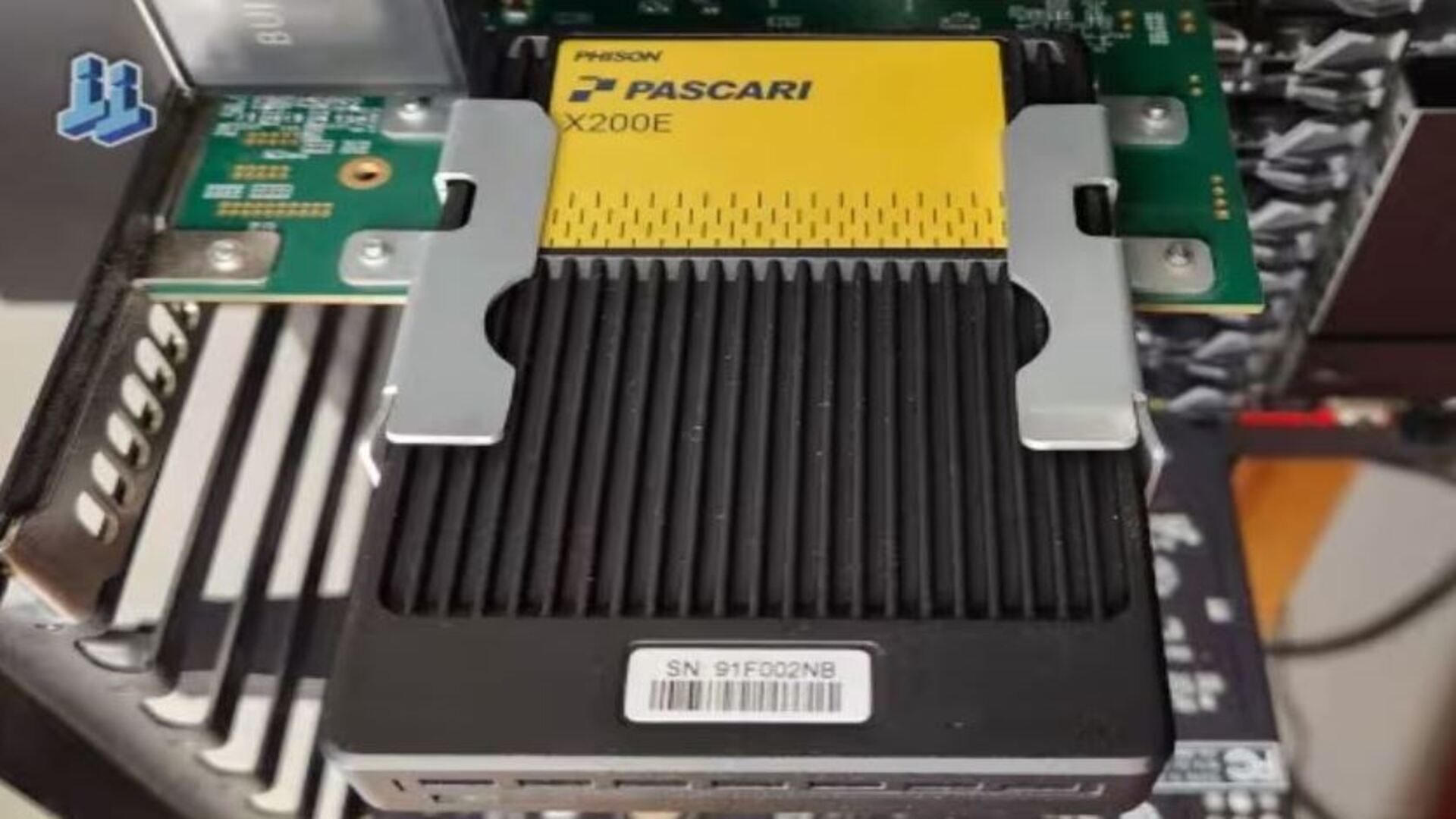This SSD just smashed the 15 GBps speed barrier to become the fastest ever tested, but you won't be able to run it on a normal PC
Built for AI and beyond, this SSD is not for your desktop

- Phison Pascari X200E sets a new benchmark with PCIe Gen5 and extreme throughput
- X200E becomes the first flash SSD to break the one million IOPS milestone
- Built for AI, not gaming, X200E dominates data center workloads effortlessly
Phison has set a new benchmark in enterprise storage performance with its Pascari X200E 6.4TB SSD, breaking records in sequential read speed, well beyond what even the fastest external hard drives can deliver.
TweakTown lab tests found the drive achieved a sequential throughput of 15,025MB/s, the highest ever recorded. In the 8K 70/30 test, which simulates database traffic, the X200E also became the first flash-based SSD to surpass 1 million IOPS.
The X200E is part of Phison’s Pascari Performance X-Series, designed specifically for extreme write intensity in data-heavy environments. It ships in U.2 and E3.S form factors, with capacity options ranging from 1.6TB to 30.72TB.
Enterprise DNA means enterprise demands
Built around the 16-channel Phison PS5302-X2-66 controller and equipped with Hynix 176-layer eTLC NAND, the X200E runs on a PCIe Gen5 x4 interface. Most desktop PCs support M.2 SSDs rather than the enterprise-grade U.2 interface, making them physically and technically incompatible with the X200E.
Even with an adapter, most consumer motherboards lack the queue depth and thermal management required to take full advantage of the hard drive's capabilities. Given these requirements, the X200E isn’t designed for typical users, it’s built for data centers, not desktops or gaming rigs.
Phison rates the X200E at up to 14,800MB/s sequential read and 8,700MB/s sequential write performance. In addition to raw speed, the drive excels in mixed workload scenarios, delivering up to 3.2 million IOPS with consistent performance across multiple queue depths, further underscoring its enterprise focus.
The X200E is engineered to support modern AI workloads and hyperscale data center operations, which often demand performance beyond the traditional queue depth of 32 used in legacy SSD benchmarks. Test results show the drive maintains steady-state performance even under random workloads with queue depths as high as 4096.
Are you a pro? Subscribe to our newsletter
Sign up to the TechRadar Pro newsletter to get all the top news, opinion, features and guidance your business needs to succeed!
As AI models continue to generate massive volumes of reads and writes across complex workflows, SSDs like the X200E will help power everything from video delivery platforms to real-time analytics pipelines.
You may also like
- These are the fastest SSDs you buy right now
- Take a look at some of the best external hard drives
- Palantir to develop “ImmigrationOS” for ICE to speed up deportations

Efosa has been writing about technology for over 7 years, initially driven by curiosity but now fueled by a strong passion for the field. He holds both a Master's and a PhD in sciences, which provided him with a solid foundation in analytical thinking. Efosa developed a keen interest in technology policy, specifically exploring the intersection of privacy, security, and politics. His research delves into how technological advancements influence regulatory frameworks and societal norms, particularly concerning data protection and cybersecurity. Upon joining TechRadar Pro, in addition to privacy and technology policy, he is also focused on B2B security products. Efosa can be contacted at this email: udinmwenefosa@gmail.com
You must confirm your public display name before commenting
Please logout and then login again, you will then be prompted to enter your display name.